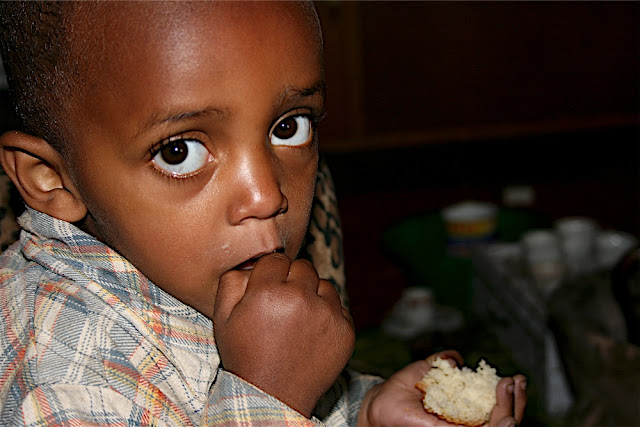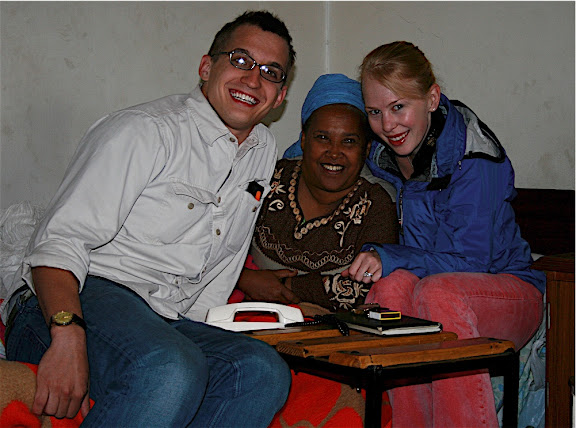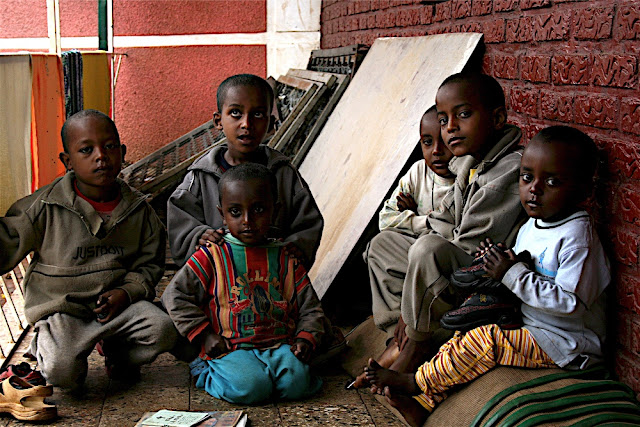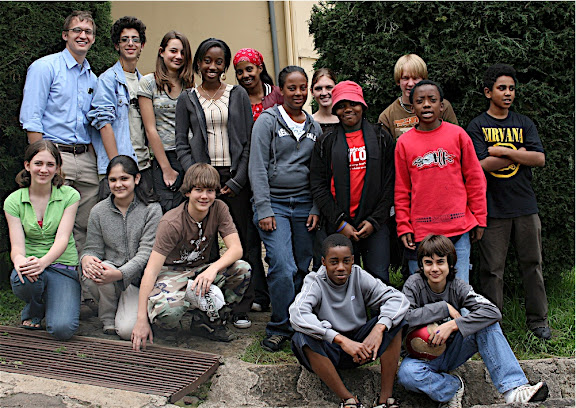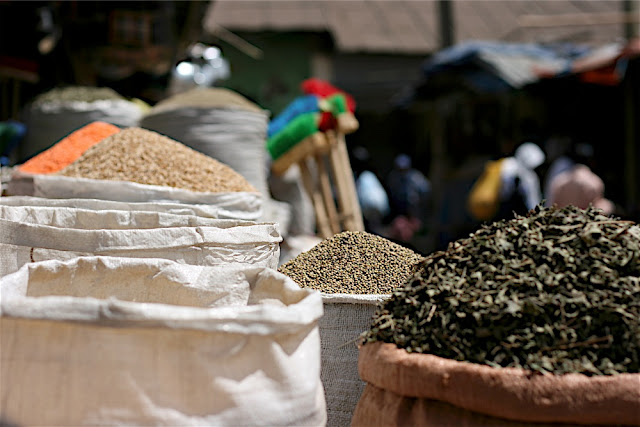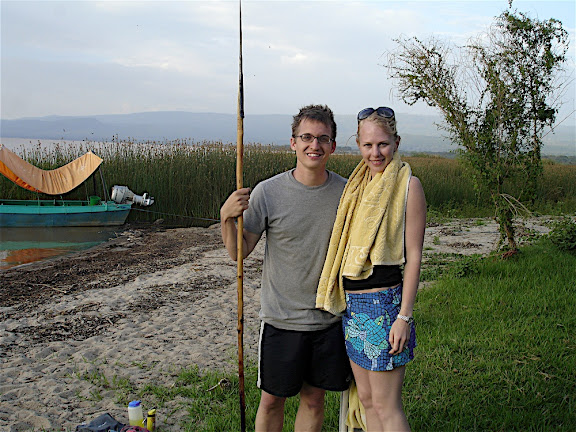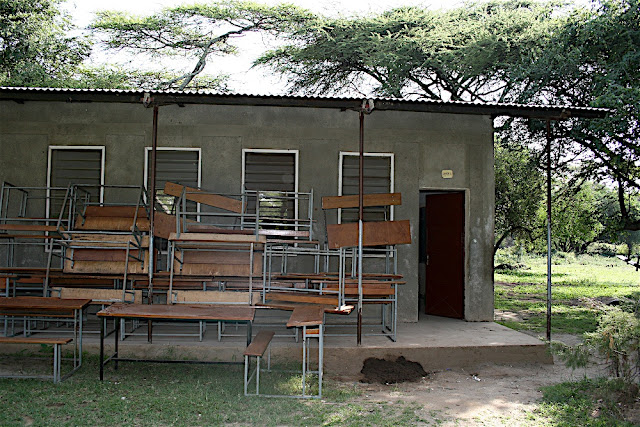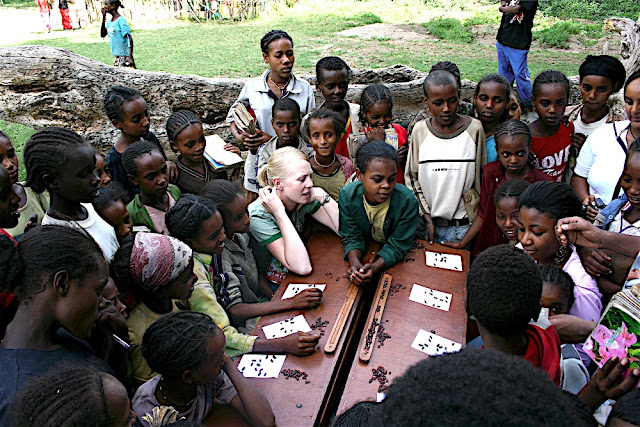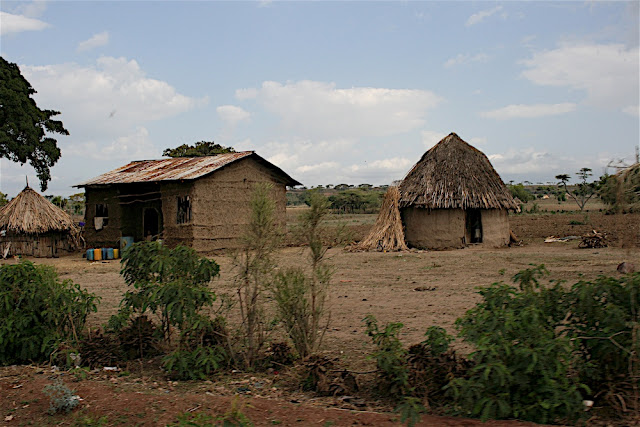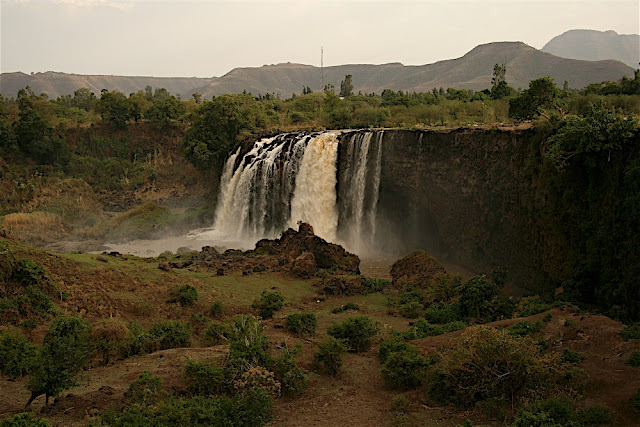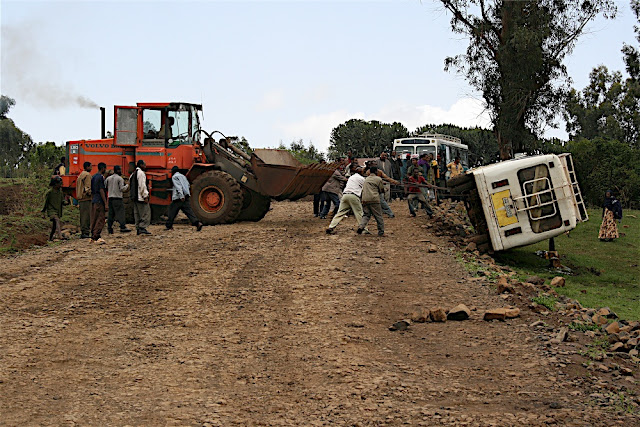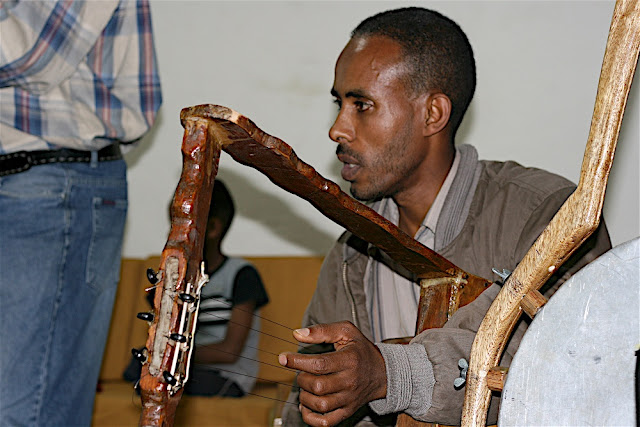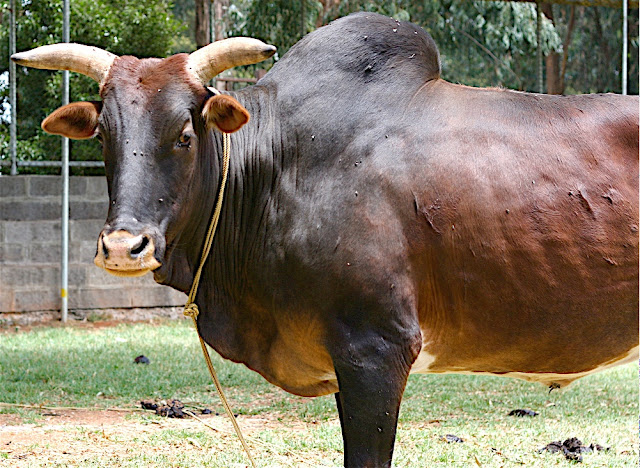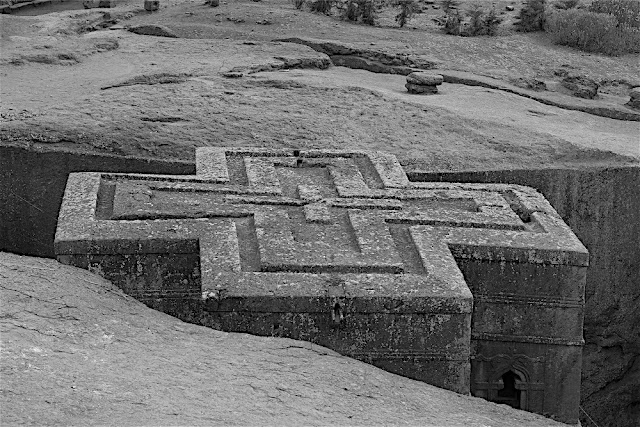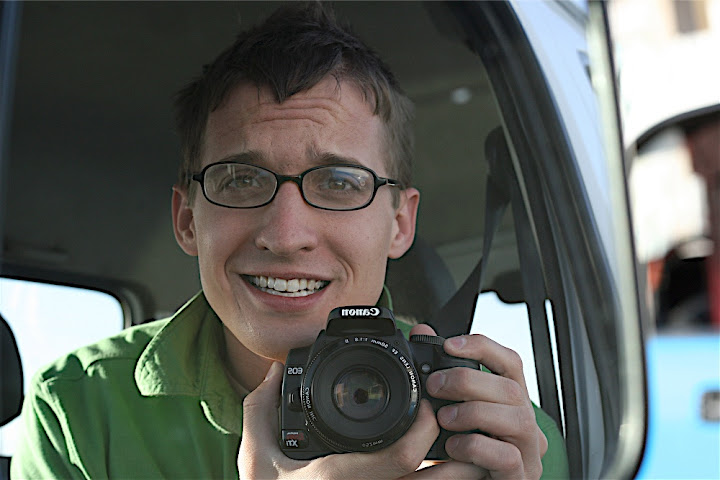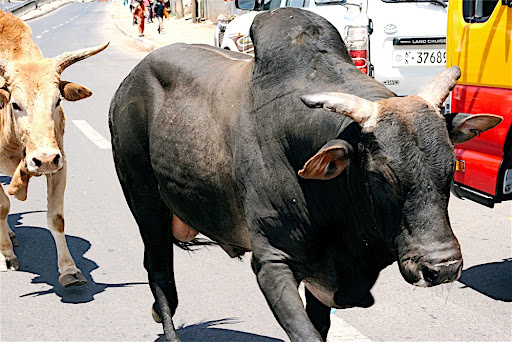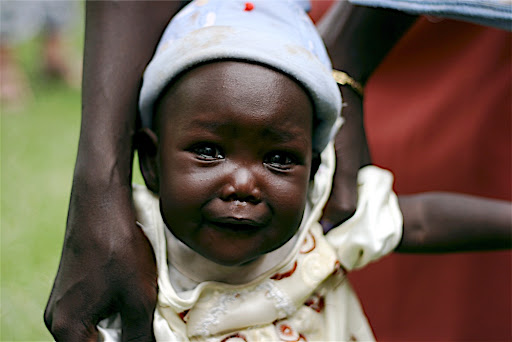So, yesterday afternoon I'm driving home from the office a little after 5PM. I have worked on my website, helped with a support group teaching HIV+ beneficiaries about nutrition and food groups, and participated in a bible study with beneficiaries. I feel like I've had a good a day as I start to head home, ready to join Daniel for a walk around the compound after I run and he plays squash. I start mentally preparing dinner in my head.
I had dropped some co-workers off en route, and was on my merry way through rush hour traffic. I go through the Merkato to get home instead of via the Ring Road (basically the bypass), because it takes about the same amount of time but is a couple less kilometers. Now, the Merkato is a pedestrian/animal/bus nightmare, but, since we pay for the cars on a per kilometer basis, it saves me $1.50 to put up with loads of people and donkeys. Now, that might not sound like a lot, but it adds up day by day on a missionary-style budget.
Now, there aren't street names, let alone signs in most places in Addis. Hence, my directions from the office to home include 'take a right by the banana billboard' and 'take a left at the huge mosque.' So, I make my banana turn and am headed to the heart of the Merkato and see my mosque. Now, there are various 'left turns' you can take -- none of them are especially marked and at 5PM the streets are clouded with people. As I start to make my turn, I realize I've turned too early, and should have waited till I'm past the mosque, not before it. Darn, I think, there is no way for me to turn around, as there is traffic everywhere not to mention people shouting 'ferenge, ferenge -- you-you-you!' at my Suzuki van.
No problem, I mistakenly think, I'll just make a turn, and cut up to the next block and have a slight adventure in the heart of Merkato. However, making turns and logically cutting back to where you think you need to go does not happen in the Merkato. Firstly, streets just suddenly end and become dirty, rocky paths clogged with Italian trucks full of teff or bananas or furniture or whatever. (And yes, these trucks must be a minimum of 40 years old, leftover from the Italian 'occupation' of Ethiopia.) With cars honking, trucks trying to run over me (in Addis, the bigger machine has the right-of-way), people shouting and begging, I am quickly and hopelessly lost. Getting out of the Merkato is more like finding the path of least resistance, not really finding the most efficient way back to your home. And, as you probably know from the previous posts, the Merkato is the largest open-air market in all of Africa.
Fifteen minutes later, I have worked my way out of the thick crush of the Merkato, but have no idea what side I've come out on. And, of course, there is no sort of shoulder to pull of on and consult a map, just people walking in front of your car and other autos honking incessantly until you pick a direction. So I pick a direction and hope it towards Bingham. 20 minutes of driving later, I realize I must have picked the worst direction possible, since I am exploring a part of Addis I've never been in. As I repeatedly call Daniel for some sort of help (Remote navigation? Psychological comfort?), I realize even if picks up, I don't even know where I am to explain how I could get out of here. I've already tried the tactic of following some blue mini-taxis, hoping they will lead me to a taxi stop I recognize (no luck, I end up near a park I've never seen). I can reach no one via phone (PS it is really not safe to be driving around Addis and trying to talk on a mobile). So, I come up with the brilliant (finally!) idea, to point my car toward the sun and try to head north and west (at least I know I can run into either the Ring Road at some point, or even Bingham). After finding some road that went mainly west, I end up at my mosque again! Relief! At least something familiar! Unfortunately, I picked the wrong direction again, and ended up almost at the office again (yeah, it's nearing on 5:45). At this point, I am just happy to make a u-turn and know where I am. This time, on approaching the mosque, i take the CORRECT left turn (which I am pretty sure I will never miss again). Around 6 PM, I pull into the Bingham campus. Whew. What a commute.
As I walk into the apartment, Daniel has just come in from playing squash with Francois, the South African math teacher. As I exclaim about my adventure, Daniel says we have 10 minutes until our dinner date with some other teachers. Yay! What a nice surprise, no need to make anything for dinner! Just what I want after an exhausting tour-de-Merkato.













